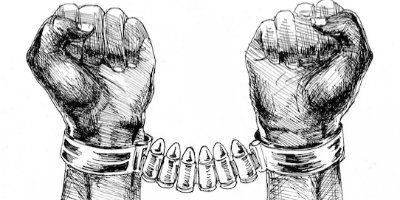7 août 1898 - American Spanish War
Description:
The Spanish–American War (Spanish: Guerra hispano-americana or Guerra hispano-estadounidense; Filipino: Digmaang Espanyol-Amerikano) was fought between the United States and Spain in 1898. Hostilities began in the aftermath of the internal explosion of USS Maine in Havana Harbor in Cuba, leading to U.S. intervention in the Cuban War of Independence. U.S. acquisition of Spain's Pacific possessions led to its involvement in the Philippine Revolution and ultimately in the Philippine–American War.The main issue was Cuban independence. Revolts had been occurring for some years in Cuba against Spanish rule. The U.S. later backed these revolts upon entering the Spanish–American War. There had been war scares before, as in the Virginius Affair in 1873, but in the late 1890s, U.S. public opinion was agitated by anti-Spanish propaganda led by newspaper publishers such as Joseph Pulitzer and William Randolph Hearst which used yellow journalism to call for war. The business community across the United States had just recovered from a deep depression and feared that a war would reverse the gains. It lobbied vigorously against going to war.
The United States Navy armored cruiser USS Maine had mysteriously sunk in Havana Harbor; political pressures from the Democratic Party pushed the administration of Republican President William McKinley into a war that he had wished to avoid.
President McKinley signed a joint Congressional resolution demanding Spanish withdrawal and authorizing the President to use military force to help Cuba gain independence on April 20, 1898. In response, Spain severed diplomatic relations with the United States on April 21. On the same day, the U.S. Navy began a blockade of Cuba. On April 23, Spain stated that it would declare war if the U.S. forces invaded its territory. On April 25, Congress declared that a state of war between the U.S. and Spain had de facto existed since April 21, the day the blockade of Cuba had begun. The United States sent an ultimatum to Spain demanding that it surrender control of Cuba, but due to Spain not replying soon enough, the United States assumed Spain had ignored the ultimatum and continued to occupy Cuba.[20][not in citation given]
The ten-week war was fought in both the Caribbean and the Pacific. As U.S. agitators for war well knew, U.S. naval power proved decisive, allowing expeditionary forces to disembark in Cuba against a Spanish garrison already facing nationwide Cuban insurgent attacks and further wasted by yellow fever. American, Cuban, and Philippine forces obtained the surrender of Santiago de Cuba and Manila despite the good performance of some Spanish infantry units and fierce fighting for positions such as San Juan Hill. Madrid sued for peace after two obsolete Spanish squadrons sank in Santiago de Cuba and Manila Bay and a third, more modern, fleet was recalled home to protect the Spanish coasts.
The result was the 1898 Treaty of Paris, negotiated on terms favorable to the U.S. which allowed it temporary control of Cuba and ceded ownership of Puerto Rico, Guam, and the Philippine islands. The cession of the Philippines involved payment of $20 million ($602,320,000 today) to Spain by the U.S. to cover infrastructure owned by Spain.
The defeat and loss of the last remnants of the Spanish Empire was a profound shock to Spain's national psyche and provoked a thorough philosophical and artistic reevaluation of Spanish society known as the Generation of '98. The United States gained several island possessions spanning the globe and a rancorous new debate over the wisdom of expansionism.
Ajouté au bande de temps:
Date:
7 août 1898
Maintenaint
~ Il y a 127 ans
